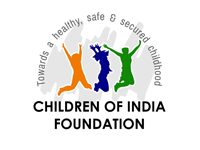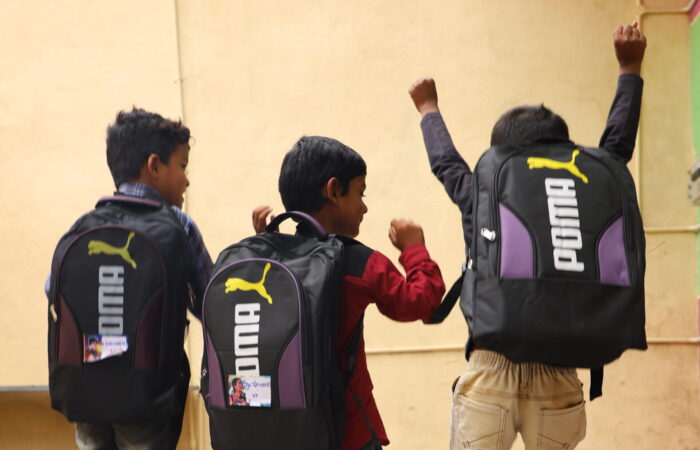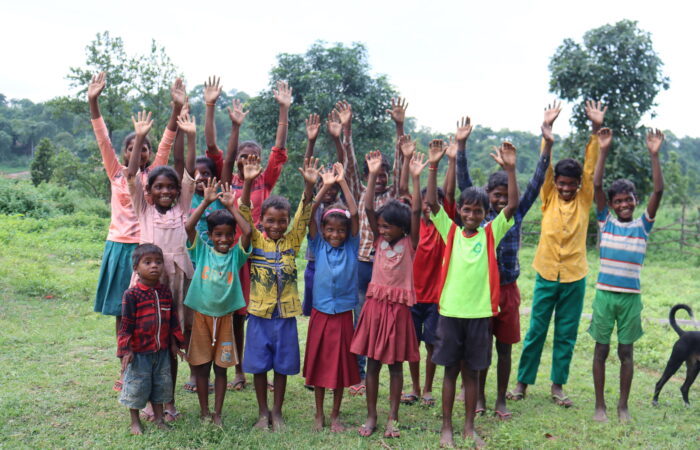Preschool education is much more than an early introduction to academics; it forms the cornerstone of a child’s cognitive, emotional, and social development. For children in underprivileged communities, access to quality preschool education can be life-changing. It is not merely an educational opportunity; it acts as a critical safeguard, protecting children from exploitation, including child labour, trafficking, and abuse. Preschools provide a safe, nurturing environment where children can grow, learn, and begin to develop the skills they need to succeed in life.
For vulnerable children, preschool education is often the first step towards breaking the cycle of poverty and disadvantage. In these early years, children absorb essential lessons, not only in literacy and numeracy but also in social interactions, emotional regulation, and problem-solving. These foundational experiences shape their future academic success and overall well-being, laying the groundwork for healthier, more fulfilling lives.
Non-governmental organisations (NGOs) focusing on enhancing early childhood education hold the power to transform the future of entire communities. By addressing resource gaps, providing training to educators, and fostering inclusive, high-quality learning environments, NGOs can help ensure that all children—regardless of their socioeconomic background—have the opportunity to thrive. Through innovative approaches and strategic partnerships, NGOs can strengthen the impact of preschool education, making it a powerful tool for social change.
This blog will explore six effective strategies that NGOs can adopt to improve preschool education in underserved communities. These strategies not only focus on enhancing the educational experience but also prioritise the holistic development of each child, providing a stable and supportive foundation for their future growth. By implementing these approaches, NGOs can play a transformative role in shaping the educational landscape for vulnerable children, creating pathways to a brighter future for all.
1. Designing a Holistic Curriculum
A well-rounded curriculum is the cornerstone of any effective preschool programme, as it provides the foundation for a child’s overall development. Such a curriculum should incorporate several key areas to promote the holistic growth of young children:
- Cognitive Development: A focus on activities that stimulate problem-solving, language skills, and early numeracy is essential. These activities encourage children to think critically, explore their surroundings, and develop foundational academic skills. By incorporating games, puzzles, and interactive storytelling, children can begin to grasp basic concepts in mathematics, reading, and reasoning.
- Emotional and Social Growth: Preschool is a crucial time for emotional and social development. Activities that promote collaboration, empathy, and self-expression help children develop their emotional intelligence. Through group play, role-playing, and discussions, children learn to communicate, share, and navigate their feelings, building the interpersonal skills they will need for life.
- Physical Development: Active play is vital for the development of fine and gross motor skills. Activities that encourage running, jumping, climbing, and crafting help to strengthen children’s physical coordination and control. Regular physical activity also supports overall health and well-being, ensuring children develop both strength and stamina.
- Cultural Awareness and Values: Exposure to diverse cultures and values is crucial for fostering respect and inclusion. Preschool is an ideal setting to introduce children to various traditions, languages, and practices, helping them understand and appreciate differences. By celebrating diversity, children learn to be open-minded, respectful, and compassionate individuals.
NGOs working in underserved communities have an opportunity to collaborate with early education experts to design curricula tailored to the unique needs of the populations they serve. By working closely with educators, local communities, and cultural leaders, NGOs can ensure that the curriculum resonates with the children and is engaging, meaningful, and culturally relevant. This approach not only enhances the learning experience but also promotes effective outcomes, as children are more likely to be engaged and learn when the content reflects their realities and experiences.
2. Empowering Educators through Training
.Educators are fundamental to the success of preschool education. NGOs must prioritise investing in teacher training to ensure they are equipped with the necessary skills and knowledge to support young children effectively. This includes:
- Using child-centred teaching methods that promote creativity and critical thinking. By focusing on the child’s needs and interests, teachers can create a more engaging and dynamic learning environment.
- Addressing diverse learning needs and developing inclusive classrooms. Teachers should be trained to recognise the different ways in which children learn, ensuring that all children, regardless of their background or abilities, can access the curriculum and thrive.
- Recognising signs of distress or trauma in children and responding appropriately. Preschool educators are often the first to notice when a child may be experiencing emotional or psychological difficulties. Training in recognising these signs and offering support can help safeguard children’s well-being.
To achieve these goals, regular workshops and mentoring programmes are crucial. These opportunities for professional development provide educators with the tools they need to create a nurturing, stimulating, and inclusive learning environment, ultimately fostering a positive and supportive foundation for children’s future education.
3. Enhancing Access to Educational Resources
For many underprivileged communities, the lack of educational materials is a substantial obstacle to children’s learning and development. NGOs can play a crucial role in overcoming this challenge by:
- Providing age-appropriate books, puzzles, and educational toys that help stimulate children’s minds, encourage exploration, and promote problem-solving skills. These resources can make a significant difference in early childhood education by fostering a love of learning.
- Creating locally relevant teaching aids using cost-effective and readily available materials. This ensures that the learning materials are not only affordable but also culturally appropriate, reflecting the local context and resonating with the children’s experiences.
- Establishing libraries and resource centres within the community. These hubs can serve as valuable spaces where children, families, and educators can access a wide range of educational resources, books, and materials that might otherwise be unavailable in the community.
By making these resources accessible, NGOs can help bridge the gap between children’s potential and their academic achievements. Providing educational materials not only supports cognitive development but also empowers young learners to reach their full potential, even in the face of limited resources.
4. Encouraging Parent and Community Involvement
Parental and community involvement is essential for the success of preschool programs, as it strengthens the foundation of early childhood education. NGOs can play a vital role in encouraging and facilitating this engagement by:
- Conducting awareness drives to educate parents about the critical importance of early childhood education. These campaigns can highlight how the early years are pivotal for a child’s development and how active participation from parents can significantly enhance their child’s learning journey.
- Organising workshops that teach parents how to support learning at home. These workshops can provide practical strategies for parents to foster a stimulating learning environment in their own homes, such as reading together, engaging in creative play, or encouraging problem-solving activities.
- Encouraging community members to volunteer at preschools. This involvement helps to build a sense of ownership and pride within the community, while also contributing valuable support to the preschool setting. Volunteering can also help bridge the gap between home and school, fostering stronger connections and a more cohesive approach to education.
By fostering these partnerships with families and communities, NGOs can create a supportive ecosystem that not only promotes the value of education but also sustains it over time. When parents and community members are actively involved, they become advocates for education, which can lead to long-term positive outcomes for the children.
5. Integrating Technology in Learning
When used thoughtfully, technology has the potential to greatly enhance the preschool learning experience, making it more engaging and effective. NGOs can contribute to this by:
- Introducing interactive educational apps and digital storybooks that provide children with an engaging way to learn new concepts. These tools can promote literacy, numeracy, and problem-solving skills through interactive games, puzzles, and stories that capture young children’s attention.
- Using multimedia tools such as videos, animations, and audio to make learning more dynamic and accessible. For example, visual and auditory materials can help explain complex concepts in simpler ways, catering to different learning styles and making abstract ideas easier to grasp.
- Training teachers to use technology effectively in the classroom. It’s important that educators are not only familiar with digital tools but are also equipped with strategies to integrate them seamlessly into their teaching methods. This ensures that technology complements traditional teaching rather than replacing it.
By incorporating technology into preschool education, NGOs can modernise the learning environment and better prepare children for a future where digital literacy will be essential. This approach helps children develop early familiarity with technology while ensuring they continue to receive a rich and well-rounded education.
6. Monitoring and Evaluating Impact
To ensure that preschool programs are truly effective, it’s essential for NGOs to regularly monitor and evaluate their impact. This ongoing process helps identify strengths and areas for improvement, ensuring that the programs are meeting the needs of the children they serve. NGOs can take several key steps to implement this:
- Tracking children’s progress in terms of cognitive, social, and emotional milestones. By regularly assessing how children are developing across these key areas, NGOs can identify whether the preschool program is effectively supporting holistic growth and where adjustments may be needed.
- Gathering feedback from parents, teachers, and community members to gain insight into how the program is being perceived and where improvements can be made. Parents and teachers are especially valuable sources of feedback, as they have direct experience with the children’s learning and development.
- Using data to refine and improve educational strategies. By analysing data from assessments and feedback, NGOs can make informed decisions about what’s working well and what needs to be adjusted. This could include refining teaching methods, revising curricula, or introducing new resources.
A robust evaluation framework ensures that NGOs are not only accountable for the outcomes of their programs but also fosters a culture of continuous improvement. This ongoing reflection and adaptation enable NGOs to better meet the evolving needs of children and communities, ensuring long-term success and impact.
How CIF is Helping Children in the Mica Belt Experience a Joyful Preschool Learning Environment
CIF is transforming the lives of children in the Mica belt of Jharkhand and Bihar by ensuring that they are not only removed from harmful child labour but also provided with a joyful, holistic preschool learning environment. In a region where child labour, particularly in the mica mines, has been a longstanding issue, CIF works to break the cycle by addressing the root causes of exploitation and focusing on early childhood education (ECE) through Anganwadi centres and home-based learning.
The project offers a play-based and child-centric approach to learning, which is central to creating a positive educational experience. Activities such as storytelling, arts and crafts, music, and interactive games encourage children to explore their imagination, develop their cognitive skills, and build social connections. This not only helps in academic development but also nurtures emotional well-being and resilience, helping children build a positive relationship with learning from an early age.
In addition to providing quality education, CIF focuses on empowering the entire community. Through parent workshops and awareness drives, CIF builds the capacity of parents and caregivers to support their children’s education and health, ensuring that the learning experience continues beyond the classroom. Moreover, the project actively involves children in child protection sensitisation, where they are given the platform to address issues of child labour and exploitation within their communities, thus promoting a sense of agency and responsibility.
By removing children from the dangerous mica mines and placing them in a nurturing learning environment, CIF not only ensures that children are safe but also creates the conditions for them to dream, explore, and succeed. The initiative is dedicated to fostering long-term change—not just by providing immediate educational opportunities but by creating a sustainable support system for families and communities. This holistic approach not only prioritises children’s education but ensures that their early years are filled with joy, creativity, and the promise of a brighter future.
Conclusion
Preschool education is a critical tool in protecting children from exploitation and equipping them for a brighter future. By adopting holistic, community-driven strategies, NGOs can ensure every child has access to quality early education. These efforts not only transform individual lives but also contribute to breaking cycles of poverty and inequality, fostering a more equitable society.


